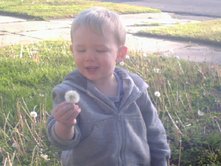
This morning I preached from Philippians and weaved the story of Jonah in with the story of Paul in prison. I must give Mike Yost, a dear friend from seminary now pastoring in Alaska, credit for much of my processing through the story of Jonah. He allowed me to take a peek at his rough, rough, rough draft. It was beyond brilliant and inspired some of what you'll see in the story of Jonah here. This picture is from http://diglib.library.vanderbilt.edu/act-search.pl (this is a wonderful resource, in their words this is a site, for "scholars, students, pastors, and religious educators" to be "used for educational and/or religious non-profit purposes") so be sure to bookmark this one.
The story of Jonah (as in Jonah and the whale) is a fascinating story. This guy is so upset with some people in Nineveh, hates them so much, gossips about them so much, says bad things about them so much... that when God saves the people of Nineveh, Jonah gets really mad.
The Ninevites and Israelites like each other about as much as KU and Missouri... The Ninevites didn't like Israel anymore than the Israelites liked them.
We see the Old Testament story play out for us like this... God calls Jonah to save the people of Nineveh. They are sinning and God cares about them. Jonah runs away from God's call, a large fish eats him, he chills out in a big fish's stomach for awhile, gets spewed back out on land, and decides THEN, after this nasty situation, that perhaps he should answer God's call. It's quite humorous really. Quite the comedic writing.
And then, after the people of Nineveh repent and God saves them... Jonah is livid. He is mad at God for acting consistantly with God's character! Jonah is angry that God showed mercy. For God is a God who loves without boundries. God is a God who refuses to draw a line in the sand and say "I won't love you because of... (fill in the blank)." God is a God who does not hate anyone, who does not say bad things about people... who loves people enough to see the divine image in them, even when things go wrong... and they choose themselves (and what they want) over what God wants... God still loves.
But Jonah, is not acting like God. Jonah was being very judgmental. Something tough happened to him (if you consider being inside of a fish tough). He was suffering, smelling nastiness (I'm sure), and in the midst of how Jonah FELT, he did not want to reflect God's character. He was so focused on his own pain, his own feelings, that he was mad at God for acting... in God's character.
And can we blame him really? He was mad at people who were known for being ruthless... and I know a lot of good Christians who are angry with people groups for acting ruthless... Jonah is frustrated that such ruthless people could possibly be let off God's hook. It's just not fair!
And how God deals with Jonah, is truly facinating. I call this "Jonah and the Plant." It doesn't quite roll off the tongue the same as "Jonah and the Whale" but still a great story. In Jonah, chapter 4, God has a little plant grow up beside Jonah and this is after he's already been spewed from the fish's mouth and Nineveh's already repented. Jonah's sitting down on the east side of the city to watch what happens and he makes a shelter for himself... when this plant grows up beside him and gives him shade, making him very comfortable. And as the sun rises the next day, God has a worm attack this wonderful shade that brings Jonah comfort... and the plant withers and dies. And Jonah is livid, even more angry. He's weak and as the sun is burning up Jonah's head and as he's suffering from heat stroke, God says to Jonah, "Do you think its right for you to be angry about the plant" (NCV)? And Jonah says, "UM. Yes. I'm dying here in the heat!" I told my people at this point, we can honestly say Jonah was being slightly dramatic and could be labeled our drama queen... they laughed.
But God says to Jonah... you don't get it. I wanted you to see the love I have for humanity... in the same way you had love for this mere, little, pathetic plant here. In other words, God says, I'm trying to show you how I have a love for humanity in your experience of feeling loss from this plant. And God says something like... don't you think I should show concern (in the same way you felt concern for this plant) towards a great city filled with thousands of people I created?!
And the story of Jonah ends like that... with God saying, DON'T YOU SEE MY CHARACTER, and Jonah, please, reflect that character... no matter how you feel, no matter if you're suffering with the sun on your head... no matter what, care about people like I do. Because God defines fairness so much differently than Jonah did... or we do. We think fairness is trying to get the best deal for a particular party... but God defines fairness as showing mercy to ALL people, even our enemies like Nineveh.
And the strangest thing about the ending of Jonah is we never know how Jonah responds to God's call to reflect God's character. The story just ends, almost abruptly... as if to flip it on us... like God was talking to us, about God's character, through the story of Jonah.
I think Jonah was acting much like the people of Philippians... angry, and acting in a way very different than Christ's self-emptying, self-giving mercy.
When Paul wrote the letter to the Philippians, he was sitting in prison, suffering immensly... certainly the prisons in those days were as miserable as being inside of a fish! :) And he speaks to the church in Philippi, in the midst of extreme suffering. He's the one suffering... and he speaks to a people who are acting like Jonah... people who (according to Philippians) were perhaps not living in a way that "brings honor to the good news of Christ."
When Paul wrote the letter to the Philippians, he was sitting in prison, suffering immensly... certainly the prisons in those days were as miserable as being inside of a fish! :) And he speaks to the church in Philippi, in the midst of extreme suffering. He's the one suffering... and he speaks to a people who are acting like Jonah... people who (according to Philippians) were perhaps not living in a way that "brings honor to the good news of Christ."
Philippians 1:21-27 almost seem to echo a phrase from last week's sermon on Joseph. Joseph tells his brothers, "You meant it for evil, but God meant it for good..." And here Paul says, my body might die, or worse, I might have to keep living... (in other words, of anything evil or bad the world could hit me with... or that could happen to me, God is going to use it for good). Because if I die, Paul says, then I get to be with Christ. But if I live, it will advance the things that really matter, the Gospel of Jesus Christ. No matter what happens, Paul writes, that God is able to use it for good.
This passage teaches us a lot about Paul's character. His character was a reflection of God's own character... of self-emptying, self-giving love and mercy. And whereas Jonah saw God's character of love for people he hated (and was angry), Paul reflects God's character even when he's suffering.
A person's character is their very being, who they ARE. Character is not something you have. You might HAVE a dollar in your pocket, but you don't have character in your pocket. You might HAVE a button on your shirt, but you don't have character on your shirt (although I did have a gentleman wear a tie with characters ON it which made everyone laugh). Character is about your being, who you ARE. Who you really are. There's a huge difference between having and being. Character is about BEING. (*Note that modern consumerism and globalization has taught us we should focus on having but this message is about how we, the Church, must focus on who we are over what we have. If you want to read further on the topic of consumerism's affect on the Church's ability to love, see my paper presented at the Wesleyan Theological Society in 2006 on the Wynkoop Center's website: http://www.wynkoopcenter.org/index.php?option=com_content&task=view&id=31&Itemid=87 ).
However, if character, is about who we ARE (our very being) then we can learn 3 things from our scripture passages today about hardship, pain, and suffering showing a person's real character (or showing who they really are). We know Paul was suffering horribly in prison, and yet he still reflected the character of God.
1. Hardship, pain, and suffering show our true character and help us see if we are a person of integrity or not. Paul was certainly suffering on the dirt floor of that prison but Paul cared more about others than he did himself, even though he was suffering. He said, even though I want to die- so I can be with Christ... I realize that living is what you need. And since you need me to live, that settles it, that's more important.
Even though Paul was suffering, he put others above himself. He embodied Christ, in self-giving love. I don't know about you, but there have been a few times where I was suffering and I cared more about myself than anyone else's needs. Kind of like Jonah's head suffering in the sun and being angry- I've done that. When the heat is on us... whether in prison like Paul or the sun like Jonah... who we really are (our true character) comes out and shows if we are a person of integrity or not (and if we reflect the character of God or not).
Paul had incredible depth and truly reflected the character of God to be able to say he would do whatever, even in suffering, if it would advance the Gospel of Jesus Christ.
This passage in Philippians teaches us about how hardship, pain, and suffering shows a person's real character to help us (first) see if we are a person of integrity or not, and second:
2. Hardship, pain, and suffering either buffs a reputation or it destroys a reputation. When we are suffering and we are hurting so badly, our true character comes out for everyone else to see. It's hard to fake who you really are when you are suffering.
And I don't know about you, but seeing Paul suffer and put the Philppians before himself, impresses me. And watching Jonah suffer and put his own need for shade above a WHOLE city of people... does not impress me.
But Paul, chooses to EMBODY Christ, in self-giving love. He ACTS like Christ would act. He becomes Christ's body (embodies Christ). In that moment, he becomes Christ's body (Christ's hands, Christ's feet, Christ's mouth, and so forth) to the people with whom he comes in contact.
And Paul teaches us a great lesson here... because as long as we are still breathing. As long as we still have a body... and we're still following Christ, we are EMBODYING Christ.
No matter how much we are suffering.
No matter what horrible things happen to us.
No matter how we feel about the people of Nineveh.
No matter how we feel about someone next to us or the people around us.
No matter how sick we feel.
No matter how tired we are.
No matter how hot the sun is.
No matter how hurt we are.
WE ARE EMBODYING CHRIST to those around us. No matter how bad it gets, we are Christ's body to the world around us. We EMBODY Christ.
What kind of a reputation do you want to have in suffering? Do you want to be a person who only embodies Christ when things are going well? Or do you want to be the kind of person who impresses, makes you swing your head around and say... "Wow, that person embodies Christ, acts like Christ, gives mercy like Christ... EVEN when things are horrible for them?"
This passage in Philippians teaches us about how hardship, pain, and suffering shows a person's real character to help us (first) see if we are a person of integrity or not, (second) either buffs a reputation or destroys it, and third:
3. Hardship, pain, and suffering serve as an example to others.
Paul's actions to choose others over himself was a great example to the Philippians and us. The God we follow is a God who chose the people of Nineveh (even when Jonah would not have chosen them). The God we follow became human, in Jesus Christ, and poured his life out for others. And Paul, was a reflection of the God who choose the sinner (in Nineveh) and Paul was a follower of this God/man who poured himself out in others (even to the point of death). Paul was a great example to the Philippians and us.
I know a family here in Wichita, a woman by the name of Chris. Her sister died and she was suffering greatly from her loss. She and her husband had already raised kids... and in the midst of their suffering, they took her sister's 3 kids in their home. That's 3 more mouths to feed and 3 more medical bills to pay... 3 more of a whole lot... to take on in the middle of suffering. Chris, is quite the example to all of us, of someone who cares for others, in the midst of suffering. And the best part of this story, is I don't think Chris or her husband can imagine their lives without these kids. The gave of themself in self-giving love, embodied Christ to these kids, and their lives have been touched by it.
What kind of an example are you leaving... in your suffering? Are you the kind of person who embodies Christ in self-giving love... even in suffering?
Because the truth is, when is the world most convinced to follow this Jesus Christ we talk about? It's when a person embodies Christ and lives a life of integrity... even in suffering. When they choose to EMBODY Christ (be Christ's body, hands, feet, mouth, and so forth), even when they are suffering. It makes us snap our heads around and say, "Woah. That person IS something special." And notice... IS not HAS... because when a person is transformed by Christ, they ARE truly amazing.
So today I want to challenge you-- as I wrap up this sermon, I want you to think and reflect on WHO YOU ARE (as one transformed by experiencing this Jesus we call Lord).
1. Are you more like Jonah? And you get angry over a plant because you're really mad that God has acted consistantly with God's character--and shows mercy and fairness in a way you would not show mercy and fairness?
Are you more like Jonah and you get so irritated by the little things-- like a worm, that you don't reflect God's character because you just don't FEEL like it?
2. Or are you like Paul, or you WANT to be like Paul... where hardship, pain, and suffering shows you have incredible integrity. And when things get tough for you-- when you're trapped in some sort of a prison-- you embody Christ, in self-giving love?
Are you like Paul (or want to be like Paul) where you are so close to God's own character-- you reflect this character and are an example to all?
May God give us the mercy and grace... to be so transformed in our character that when we are suffering immensely in the belly of a fish or on the dirt floor of a prison, we reflect God's chracter... and we EMBODY (be Christ's hands and feet on earth) in self-giving love.
Closing Prayer: God of all mercy and grace... the one who extends mercy in ways we do not always think are fair. We ask that you would use this message today to transform us all. May you reveal to each us us today, how you want to use your Word, the Scriptures, to change who we ARE, to change our characters to be more like you. Help us to see the people of Nineveh in the way you see them. Teach us how to have your eyes of mercy and not judge others or draw lines in the sand. Help us to be people of integrity, even in suffering... that the world may look at us, your Church, and snap their heads around... because even when we are hurting, sick, tired, and the sun is beaming down on our heads... we act like you and we reflect your character. Amen.




1 comment:
Christy,
That was a wonderful comparison. I wish I could have heard you present it! I'm sure many who heard never thought past Jonah after God released him from the fish and you did a great job bringing his situation and attitude into our present time!
Post a Comment